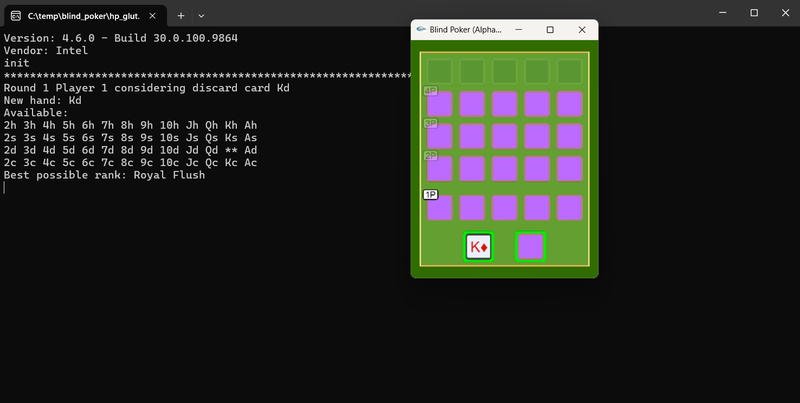I asked this on Math Stack Exchange, but my question was closed, so I'm cross-posting here.
I have a poker code that properly classifies 5-card hands. I also have a code to best classify 1-card hands, 2-card hands, 3-card hands, and 4-card hands.
For instance, where n=5 we get these frequencies that closely match those on https://en.wikipedia.org/wiki/Poker_probability:
High Card
1301457
One Pair
1099504
Two Pair
123713
Three of a kind
54592
Straight
10151
Flush
5038
Full House
3838
Four of a kind
619
Straight Flush
44
Royal Flush
4And for instance, for a 1-card hand (plus the remaining unflipped cards), the frequencies become:
Straight Flush
1599447
Royal Flush
999513It turns out that the frequency ratio is like 1.6=8/5. This makes sense. Using one card plus the remaining unflipped cards leads to Royal Flush when the one card is Ace through 10 (which is 5 possibilities, versus Straight Flush 2 through 9 (which is 8 possibilities).
For a 3-card hand:
Three of a kind
1566610
Straight
450344
Flush
104363
Four of a kind
447411
Straight Flush
25582
Royal Flush
4650In terms of the binomial coefficient, what are the actual odds for the 3-card hand?
The whole C++ code is too long to paste here. The code is at: https://github.com/sjhalayka/poker










